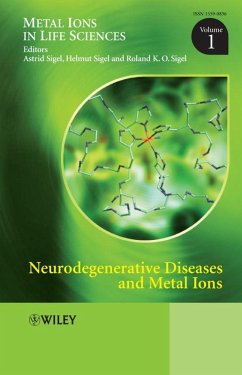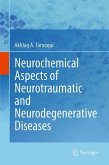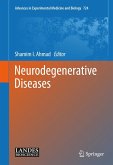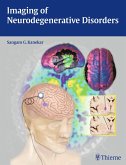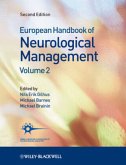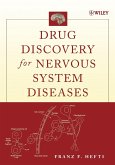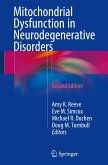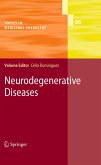Metal Ions in Life Sciences links coordination chemistry and biochemistry in their widest sense and thus increases our understanding of the relationship between the chemistry of metals and life processes. The series reflects the interdisciplinary nature of Biological Inorganic Chemistry and coordinates the efforts of scientists in fields like biochemistry, inorganic and coordination chemistry, molecular and structural biology, enzymology, environmental chemistry, physiology, toxicology, biophysics, pharmacy, and medicine. Consequently, the volumes are an essential source for researchers active in these and related fields as well as teachers preparing courses, e.g., in Bioinorganic Chemistry.
Volume 1, offers in 15 stimulating chapters an authoritative view of the fascinating research on Neurodegenerative Diseases and Metal Ions. Written by 41 internationally recognized experts, ithighlights, supported by 130 illustrations, the recent progress made in understanding the role metal ions play in diseases like transmissible spongiform encephalopathies (Creutzfeldt-Jakob and related diseases), Alzheimer's, Parkinson's, Huntington's, Wilson's and Menkes' diseases, as well as in familial amyotrophic lateral sclerosis and others. The interplay between metal ions, catecholamines and the formation of reactive oxygen species resulting in oxidative stress is considered, as is the metalloneurochemistry of zinc and the neurotoxicity of aluminum, cadmium, lead, and mercury. The need for novel drugs which manipulate metal-centered neuropathology is emphasized. With more than 2000 references this book is a vital resource for scientists and advanced students.
Volume 1, offers in 15 stimulating chapters an authoritative view of the fascinating research on Neurodegenerative Diseases and Metal Ions. Written by 41 internationally recognized experts, ithighlights, supported by 130 illustrations, the recent progress made in understanding the role metal ions play in diseases like transmissible spongiform encephalopathies (Creutzfeldt-Jakob and related diseases), Alzheimer's, Parkinson's, Huntington's, Wilson's and Menkes' diseases, as well as in familial amyotrophic lateral sclerosis and others. The interplay between metal ions, catecholamines and the formation of reactive oxygen species resulting in oxidative stress is considered, as is the metalloneurochemistry of zinc and the neurotoxicity of aluminum, cadmium, lead, and mercury. The need for novel drugs which manipulate metal-centered neuropathology is emphasized. With more than 2000 references this book is a vital resource for scientists and advanced students.

